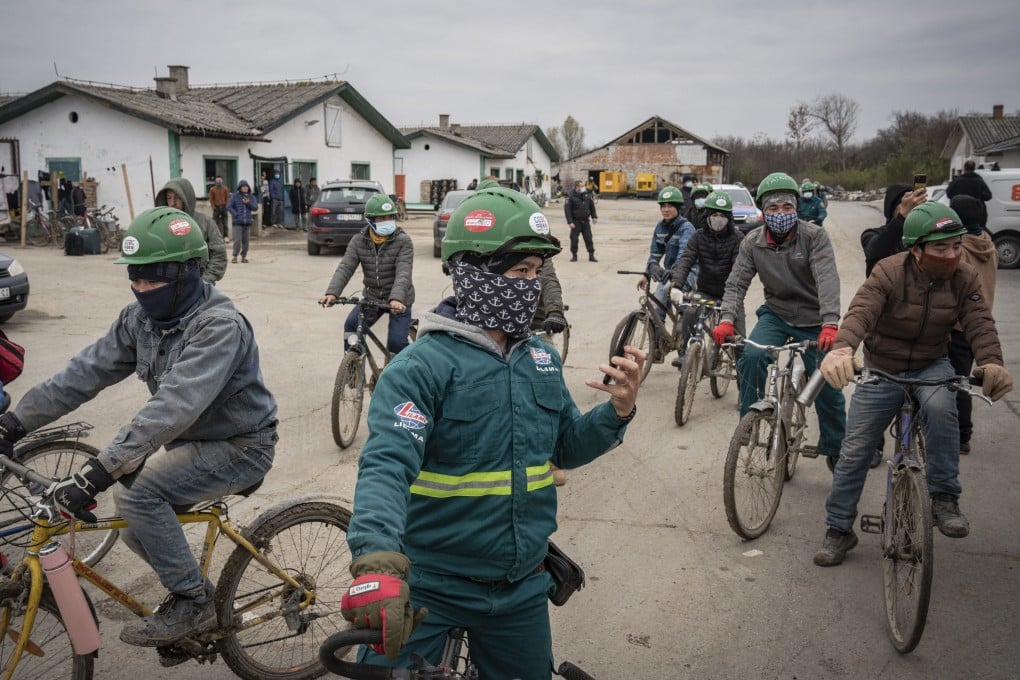Vietnamese workers at Chinese tyre factory in Serbia get back passports as activists call for human trafficking probe
- Migrant workers say they face long hours in the cold and substandard living conditions for a job some were allegedly duped into after paying thousands of dollars
- Activists and members of the European Parliament have raised concerns about the workers, whose predicament highlights a darker side of the global supply chain

When Vo Van Hieu* paid over US$2,000 to a Vietnamese recruitment agency to work in Europe, he expected to be employed by a German furniture factory.
Instead, he’s spent the month working outdoors to build a factory for China’s Shandong Linglong Tire Co in Serbia’s free trade zone of Zrenjanin, about 80km from the capital Belgrade, and where South Korea’s LS group and Italy’s Tecnostrutture also have factories.
After living in cramped rooms without heating and mattresses under temperatures hovering below 10 degrees Celsius, not getting paid, being fed rations of rice and boiled eggs and inadequate protection gears – Hieu had to borrow a broken protection belt to suspend himself on high steel structures – Hieu and about 100 other workers went on strike, saying their passports had also been seized.
“It’s like we are living in prison,” said Hieu, who spoke to This Week in Asia in Vietnamese, adding that he had taken the job to pay for his sick father’s medical bills.
About 500 Vietnamese workers were recruited by China Energy Engineering Group (CEEC), which is building the factory for Linglong. The company pledged 800 million euros to set up shop in Serbia, touted it as the largest foreign investment project in the landlocked eastern European country, and said the factory would be Linglong’s second overseas manufacturing base after Thailand. Its customers in 170 countries include Volkswagen Group.
Shandong Linglong did not respond to multiple e-mail requests for comment from This Week in Asia but told Serbian media that subcontractors and job agencies were to blame for the workers’ situation.